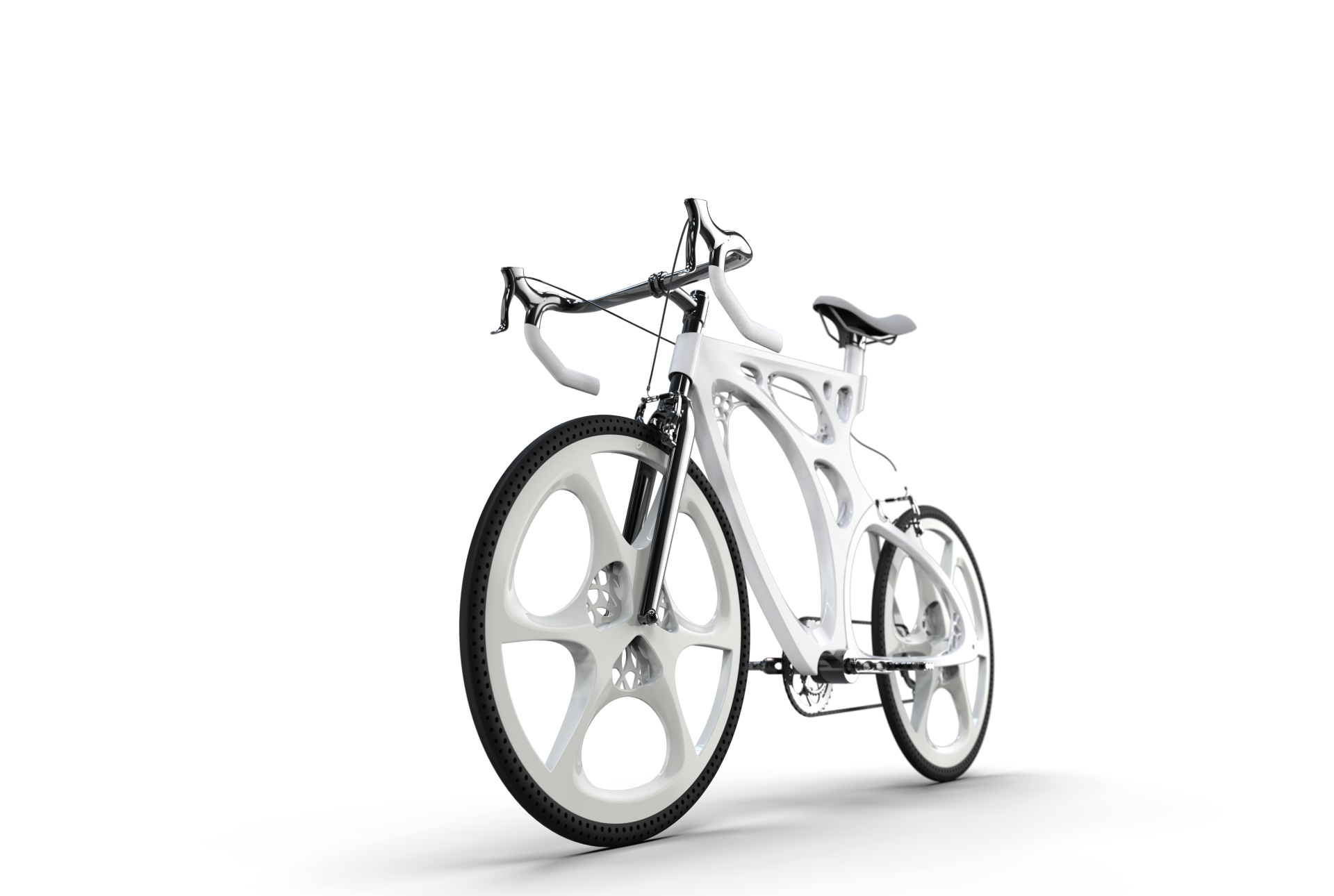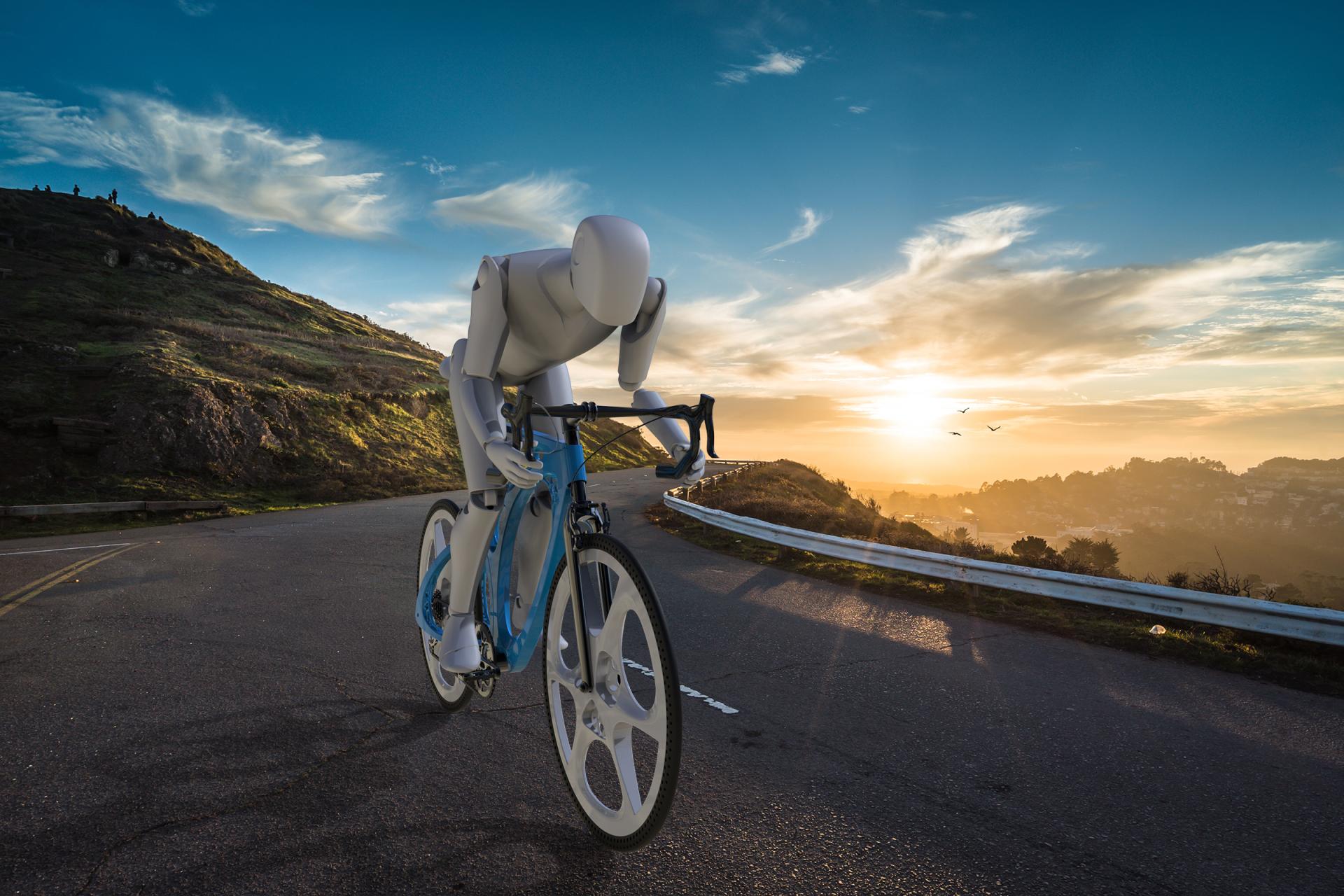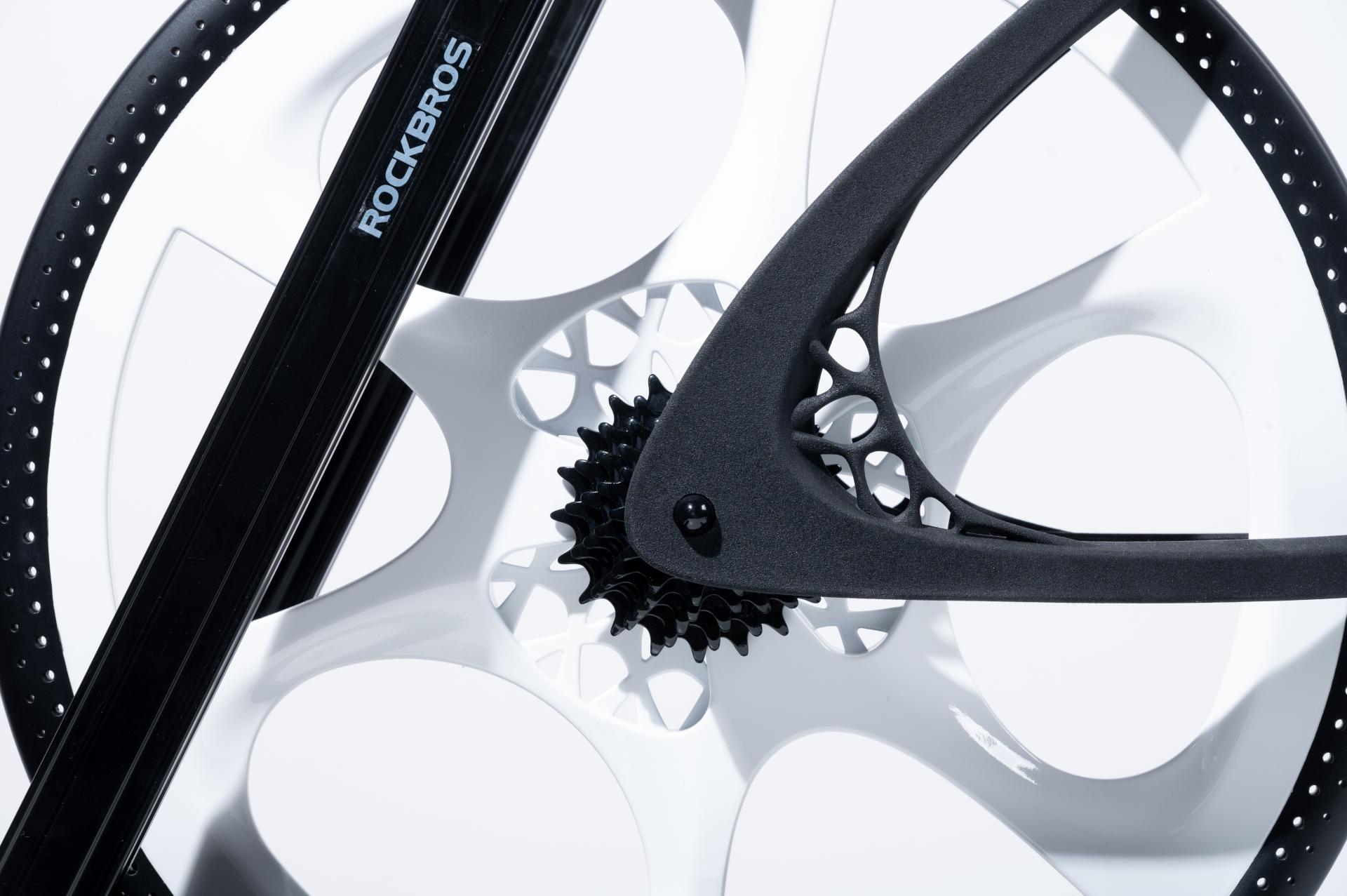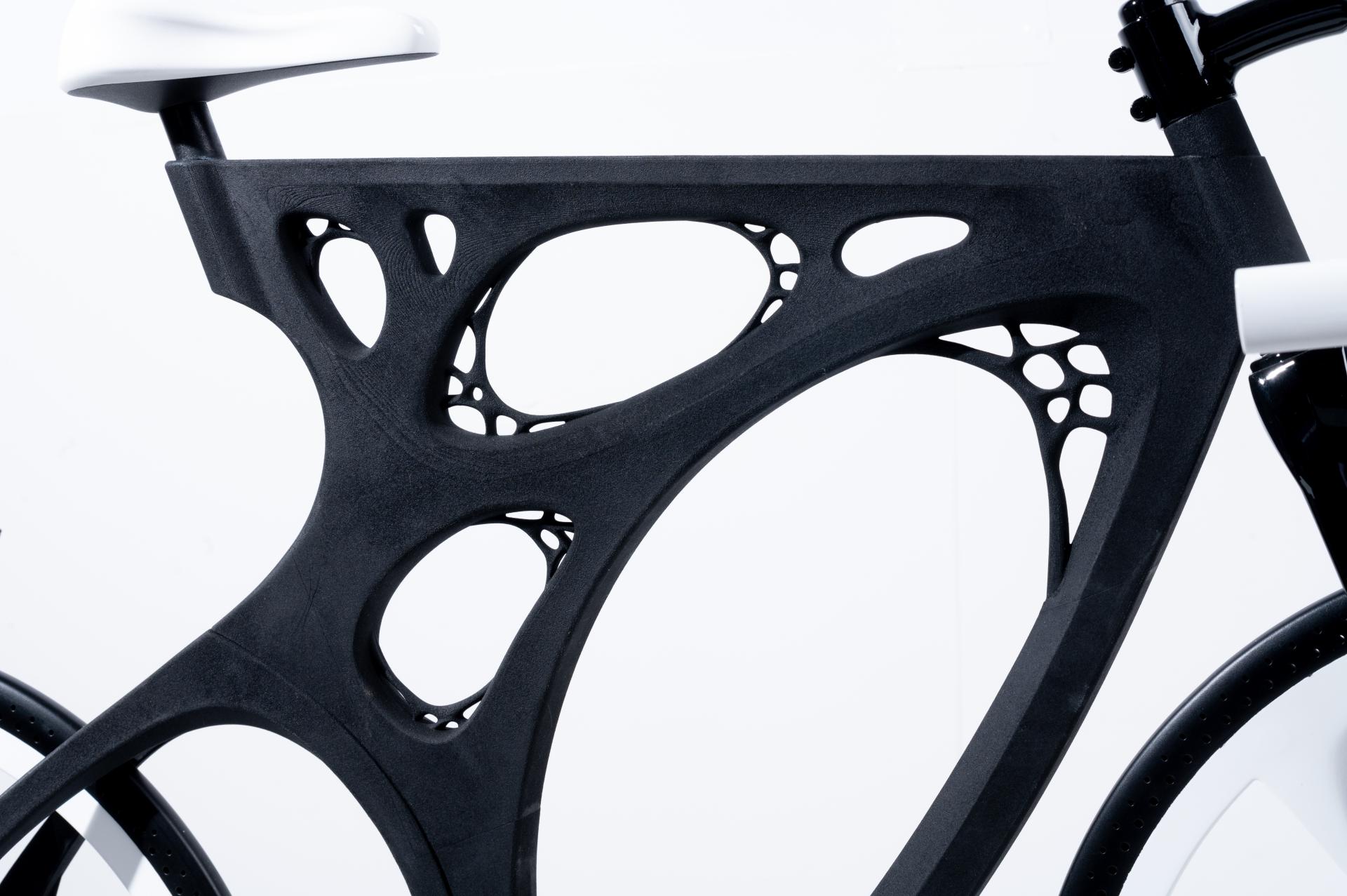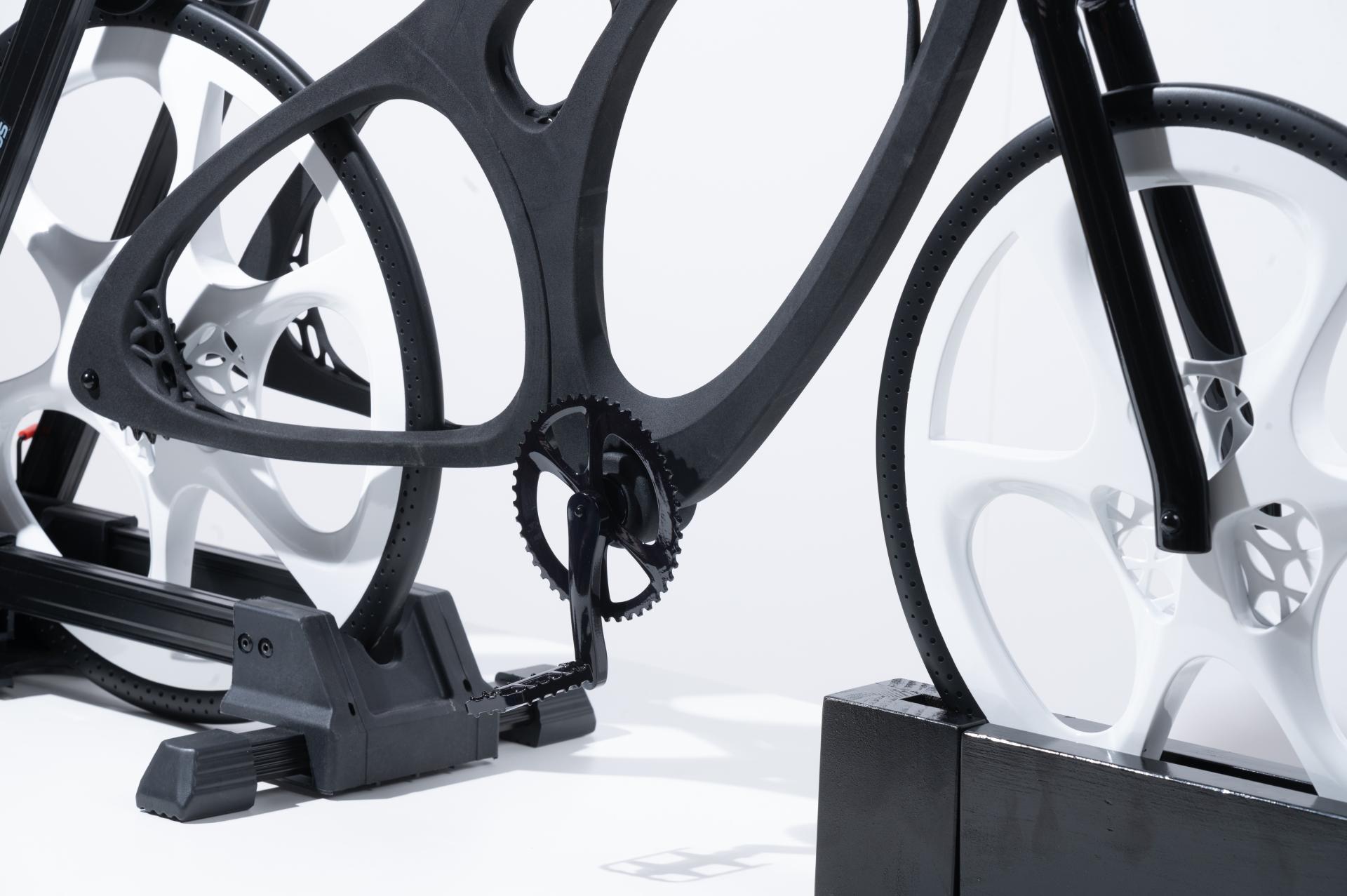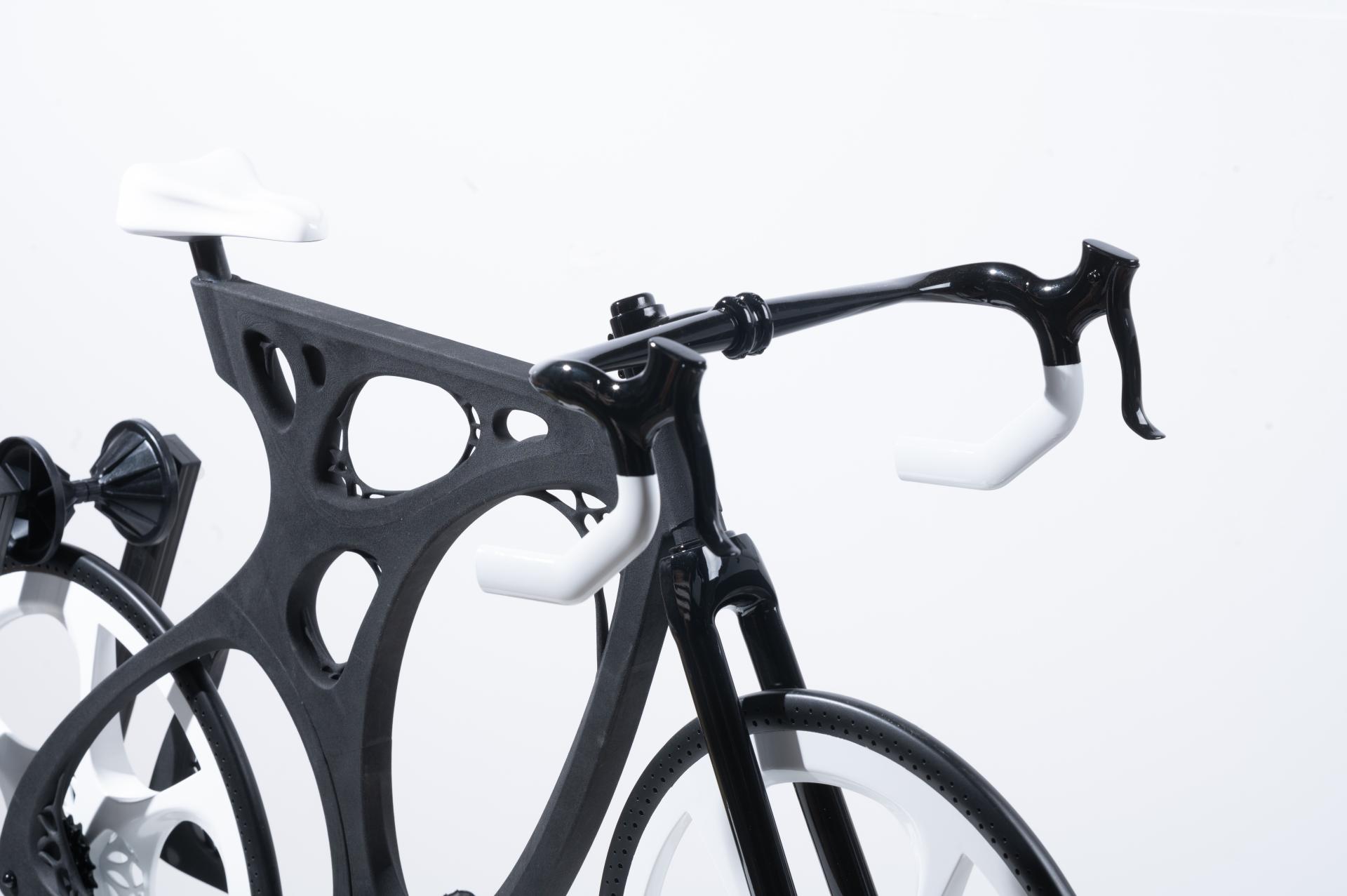2025 | Student

3D Printed Bicycle Lightweight Design
Entrant Company
Hubei Institute of Fine Arts
Category
Product Design - 3D Printed
Client's Name
Country / Region
China
This project explores a new structural design for bicycles by integrating topology optimization with 3D printing technology. The design aims to redefine the traditional bicycle frame, offering a lightweight, customizable, and futuristic approach to urban mobility while promoting the synergy between green transportation and digital manufacturing.
Design Highlights:
1.Topology Optimization for Structural Innovation
The bicycle frame is redesigned using topology optimization algorithms based on mechanical stress analysis. This method retains essential structural elements while eliminating redundant material, achieving a lightweight yet robust frame with an organic aesthetic.
2.3D Printing for Complex Geometry Realization
Advanced SLA and SLM 3D printing techniques are employed to precisely reproduce complex, optimized geometries, breaking through the limitations of traditional manufacturing and showcasing the potential of next-generation materials and processes.
3.Modular and Assembly-Friendly Design
The bike is composed of clearly defined modules, enabling easy disassembly, replacement, and maintenance. This structure supports low-volume, highly customized production and enhances the product’s versatility and sustainability.
4.Refined Ergonomics
Through virtual simulations and posture testing, the design optimizes seat position, handlebar angle, and overall geometry to ensure a comfortable and stable riding experience, even during long-distance use.
5.Tech-Inspired Visual Language
The bike frame adopts a bio-inspired mesh structure generated through algorithmic design, blending futuristic technology with natural aesthetics for a visually striking and emotionally resonant product form.
The main frame is produced using metal SLM 3D printing, followed by surface smoothing and aesthetic finishing. Components such as wheels, fenders, and outer shells are printed with SLA resin, balancing lightweight construction with visual coherence.
This concept demonstrates the potential of personalized, eco-friendly, and digitally manufactured urban transportation. By combining topology optimization with additive manufacturing, it minimizes material waste and development costs, while expressing a new product language rooted in sustainability and technological beauty.
Credits
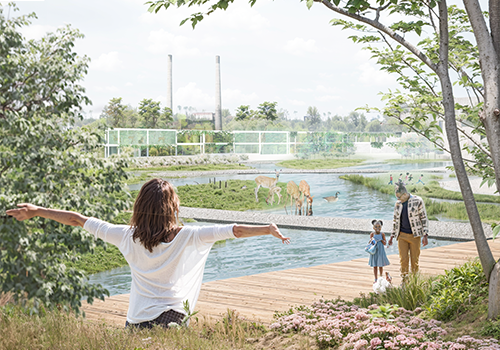
Entrant Company
KEJIE WANG
Category
Landscape Design - Innovative Landscape (NEW)

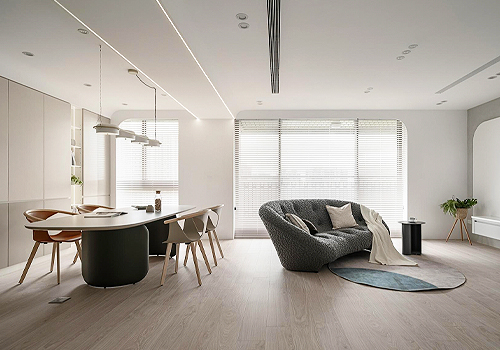
Entrant Company
CYCU Ph. D. Program in Design
Category
Interior Design - Residential


Entrant Company
Guangzhou Shenglan Food Co., Ltd.
Category
Packaging Design - Dairy, Spices, Oils, Sauces & Condiments

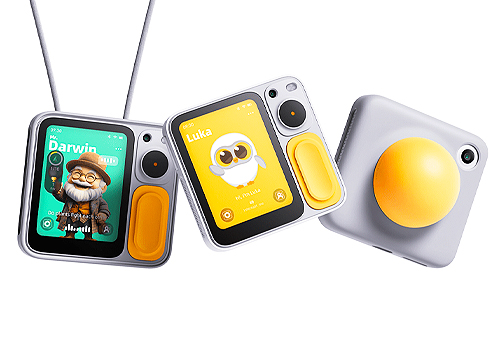
Entrant Company
Shanghai Ling Universe Technology Development Co.,Ltd.
Category
Product Design - Educational Tools / Teaching Aids / Learning Devices


